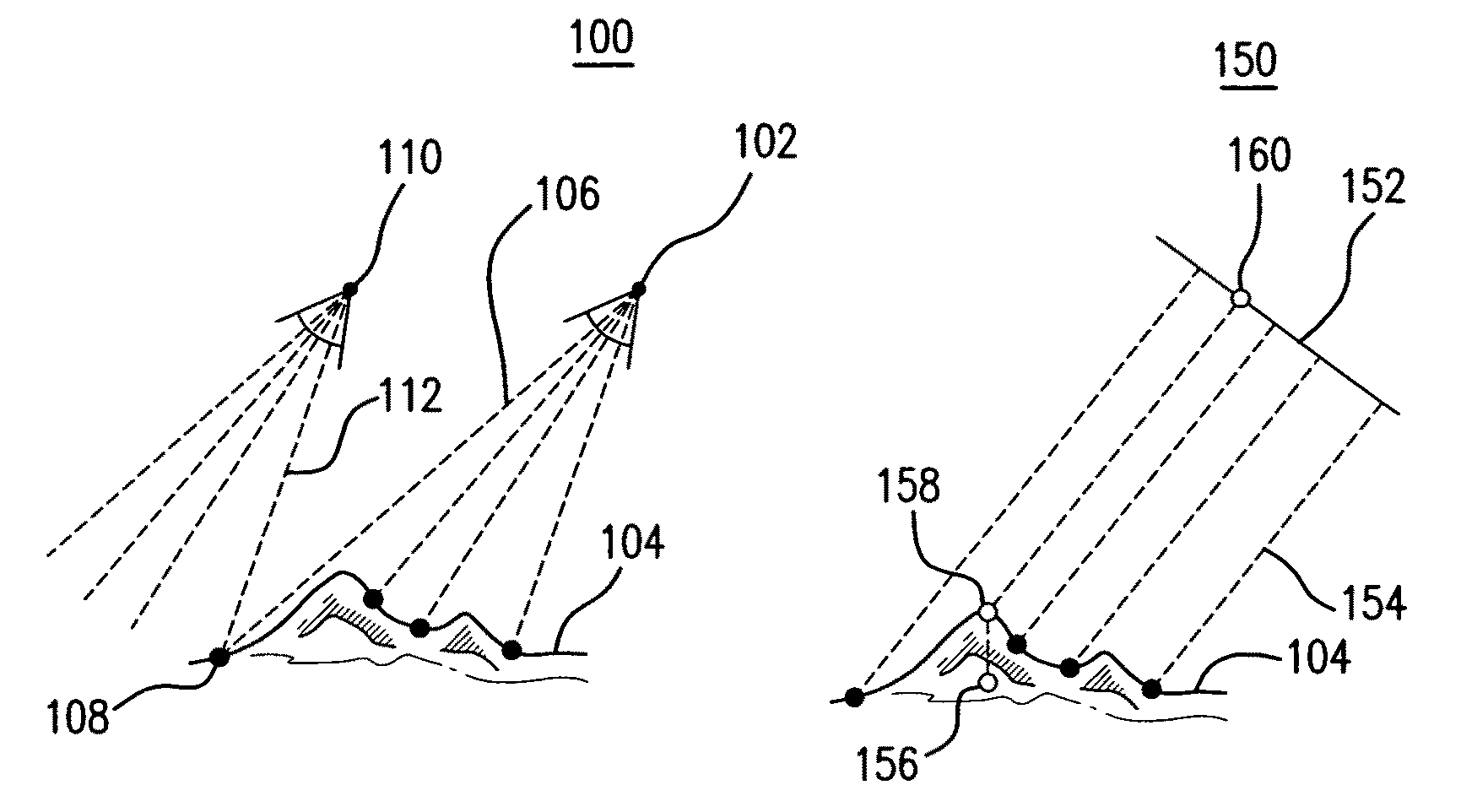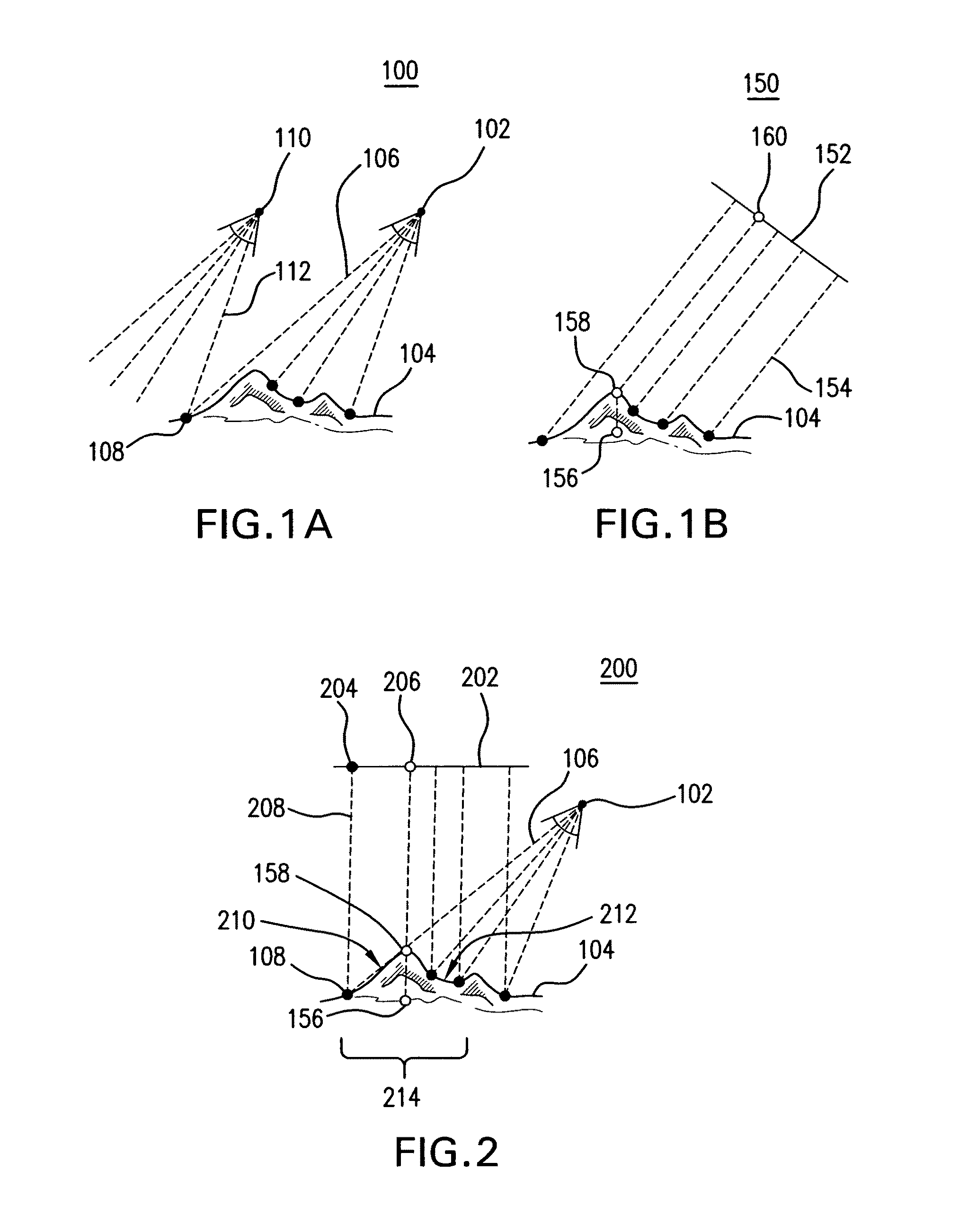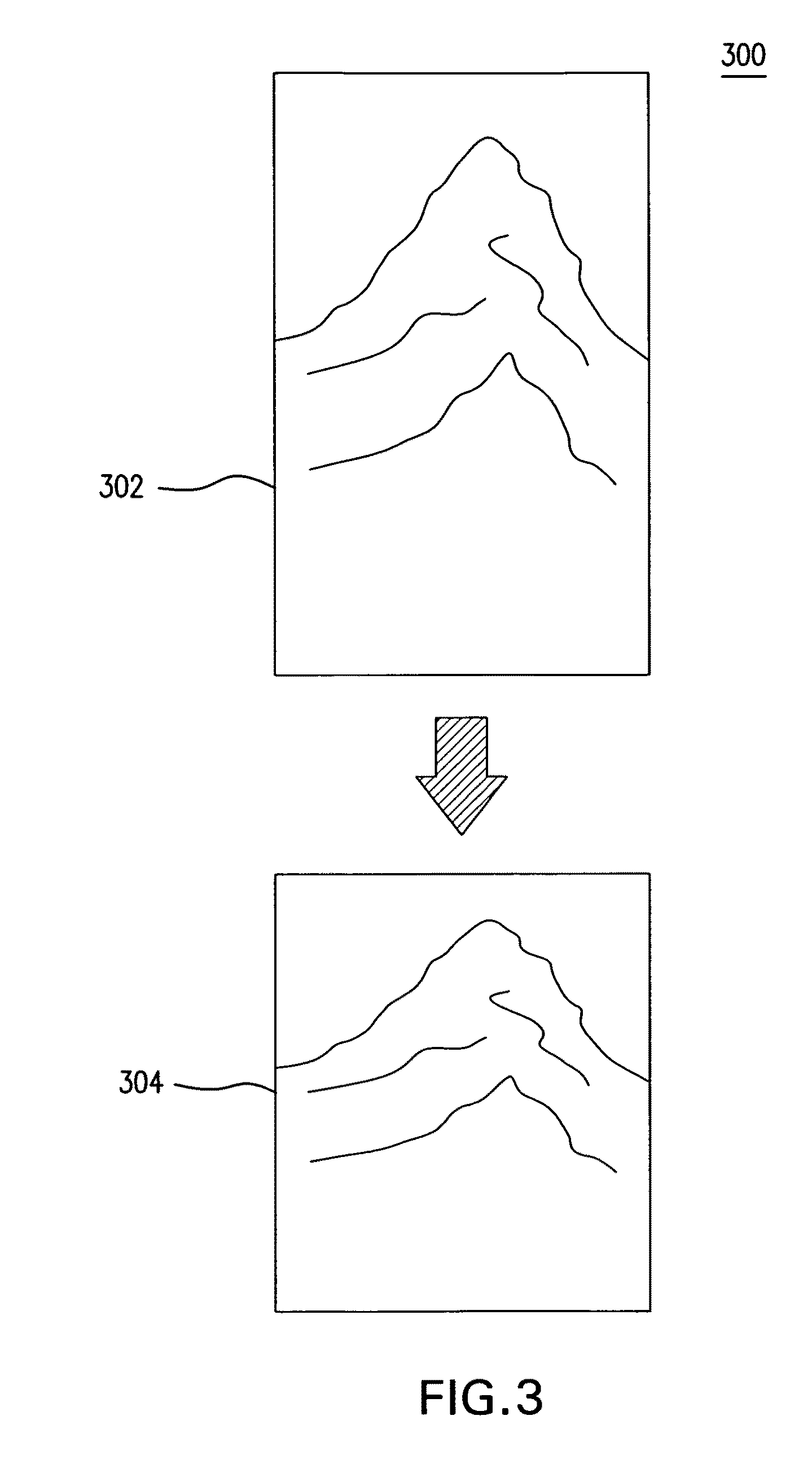Orthorectifying stitched oblique imagery to a nadir view, and applications thereof
a technology of oblique imagery and orthorectification, applied in the field of displaying oblique imagery, can solve the problems of difficult navigation between images, limiting the capture of nadir photographs, and limiting the capture of steep perspectiv
- Summary
- Abstract
- Description
- Claims
- Application Information
AI Technical Summary
Benefits of technology
Problems solved by technology
Method used
Image
Examples
Embodiment Construction
[0024]In general, embodiments of this invention relate to processing oblique imagery to display with map data. This Detailed Description is divided into sections. The first section describes orthorectifying oblique images according to an embodiment. The second section describes foreshortening and smoothing to correct distortions caused by the orthorectification. The third section describes assembling the corrected, orthorectified images into a mosaic and overlaying map data. The fourth section describes a system for orthorectifying stitched oblique imagery to a nadir view according to an embodiment. Finally, the fifth section describes a method for orthorectifying stitched oblique imagery to a nadir view according to an embodiment.
Orthorectification
[0025]FIG. 1A is a diagram 100 illustrating cameras 102 and 110 positioned to capture oblique photographs of a terrain 104. An oblique photograph is a photograph taken with a camera inclined between the horizontal and the vertical directi...
PUM
 Login to View More
Login to View More Abstract
Description
Claims
Application Information
 Login to View More
Login to View More - R&D
- Intellectual Property
- Life Sciences
- Materials
- Tech Scout
- Unparalleled Data Quality
- Higher Quality Content
- 60% Fewer Hallucinations
Browse by: Latest US Patents, China's latest patents, Technical Efficacy Thesaurus, Application Domain, Technology Topic, Popular Technical Reports.
© 2025 PatSnap. All rights reserved.Legal|Privacy policy|Modern Slavery Act Transparency Statement|Sitemap|About US| Contact US: help@patsnap.com



